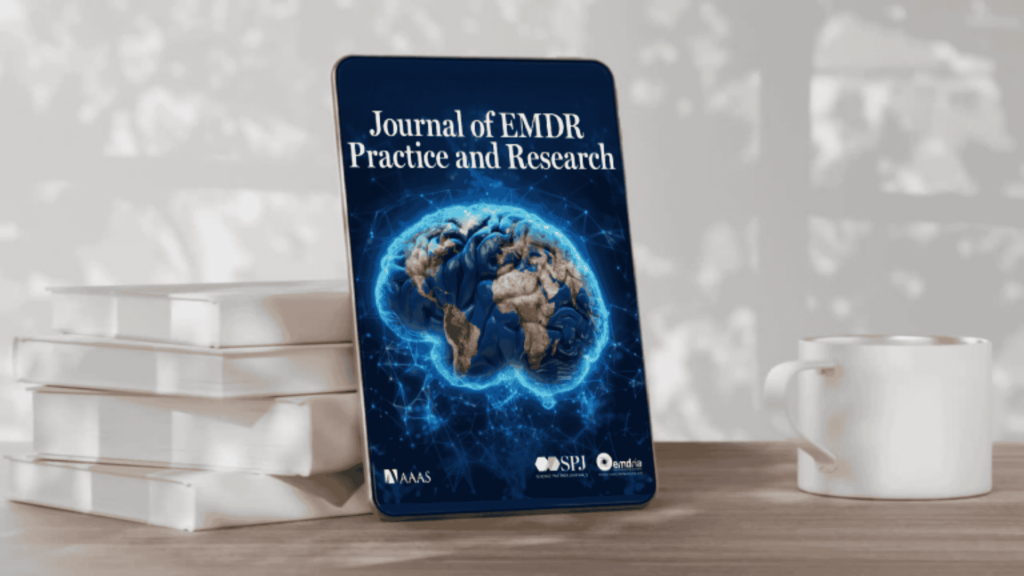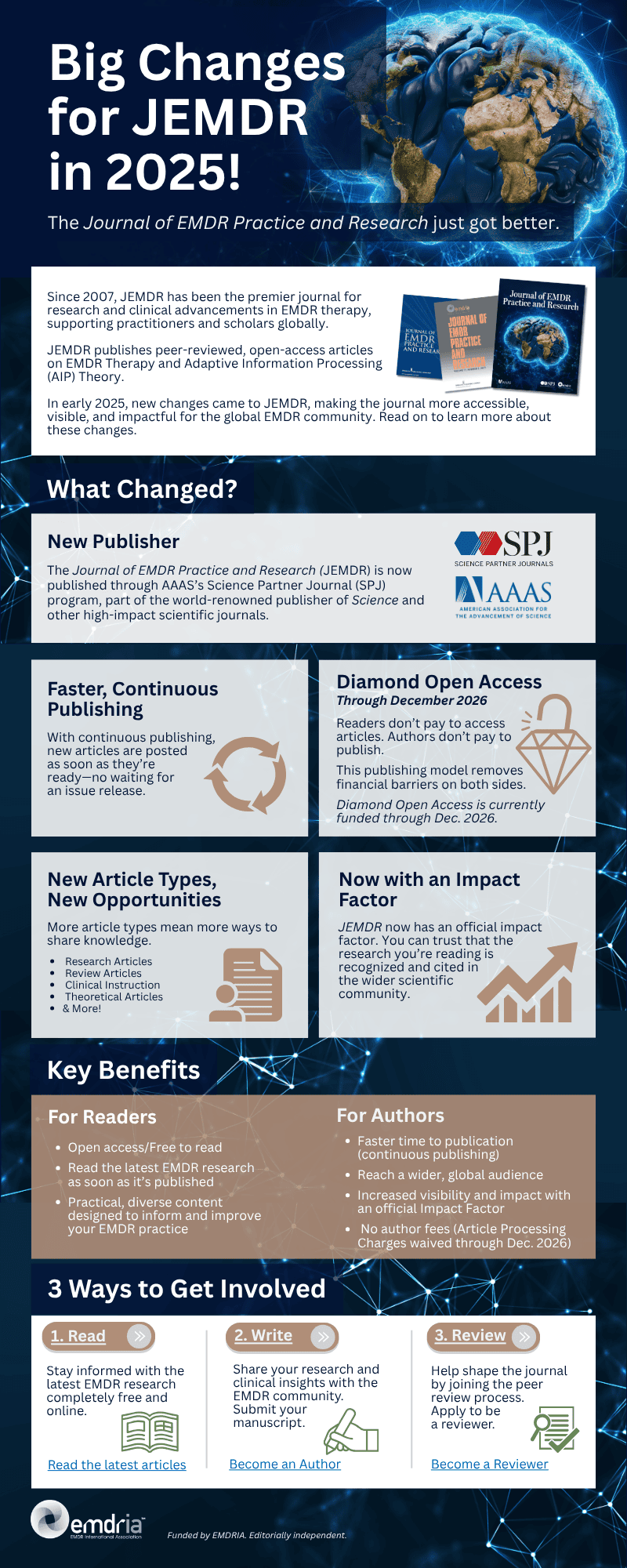About JEMDR®
The Journal of EMDR Practice and Research® (JEMDR) is a peer-reviewed publication devoted to integrative, state-of-the-art papers about EMDR therapy. It is a broadly conceived interdisciplinary journal that stimulates and communicates research and theory about EMDR therapy and its application to clinical practice. The journal publishes experimental studies; theoretical, review, and methodological articles; case studies; brief reports; and book reviews.
Established in July 2007 by EMDRIA™, the journal is published by The American Association for the Advancement of Science (AAAS). Beginning January 1, 2025, JEMDR® will be published by the Science Partner Journals (SPJ) program of AAAS, the world’s oldest and largest general science organization, serving 10 million people around the globe. AAAS publishes the renowned journal Science, among others.
- ISSN (print): 1933-3196
- ISSN (online): 1933-320X
JEMDR® is co-edited by Jenny Rydberg, a former special editor with JEMDR®, book editor, and associate editor of the European Journal of Trauma and Dissociation, and Derek Farrell, Ph.D., MBE, a principal lecturer in psychology at the University of Worcester, UK, where he directs a master’s program in EMDR therapy.
Read the Latest Articles
Stay informed with the latest research completely free and online.
Become an Author
Share your research and clinical insights with the EMDR community.
Become a Reviewer
Help shape the journal by joining the peer review process.
Recent Articles
L’EMDR (désensibilisation et retraitement par les mouvements oculaires) comme traitement d’appoint de la dépression unipolaire : une étude contrôlée (Journal of EMDR Practice and Research)
La dépression est un trouble mental grave qui constitue un défi pour les systèmes de santé mentale du monde entier. Environ 30 % des patients…
Efficacité de la méthode EMDR-sur-le-champ pour le traitement de symptômes comportementaux chez des patients atteints d’une démence sévère (Journal of EMDR Practice and Research)
Bien que les symptômes principaux de la démence consistent en des déficits neuropsychologiques, affectant particulièrement la mémoire à long…
Integrated Trauma Treatment in Drug Court: Combining EMDR Therapy and Seeking Safety (Journal of EMDR Practice and Research)
Trauma and co-occurring substance use disorders are disproportionately prevalent in individuals involved in the criminal justice system.
See other resource types in the EMDRIA™ Library.



